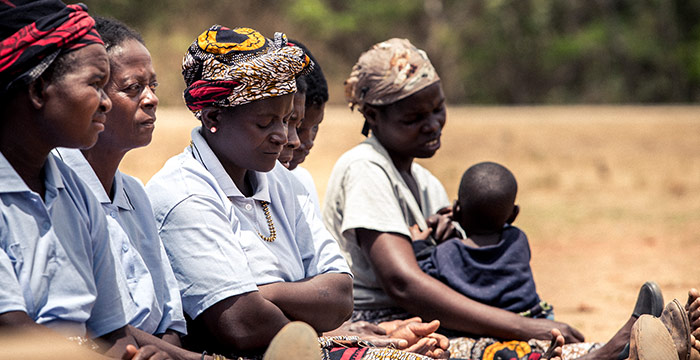
Malawi, Africa
Mthyoka Village
Savings and loans scheme
In Mthyoka 30 vulnerable houses were identified and received conditional grants. The recipients initiated group and individual businesses and established a savings and loans scheme that has benefited not only their children but the schools and the local community.
Situated 33 kilometers from Malawi’s capital of Lilongwe, Mthyoka Village has a sizeable number of smallholder tobacco farmers, and the livelihoods of the people there depend on agricultural-based and small-scale businesses. During the growing season, smallholder tobacco farmers used to engage their own children or employ other children to work on their farms. This was regarded as a normal practice by a majority of people in the village. However when ARISE commenced there in 2011, a Community Child Labor Committee (CLCC) was established with the support of community leaders, and 30 vulnerable households were identified. The mothers of these households were each given a conditional capital loan of MWK 24,000 (USD 56) to support their individual and group businesses. The women were divided in three groups comprised of ten women in each group. The condition for the capital was that two of each of the women’s children had to be enrolled and remain in school and not be engaged in child labor.
Together with training and the conditional capital investments, the women initiated group and individual businesses. They also started a Village Savings and Loan (VSL) scheme, which enables them to save and borrow money from their group. The women began working together and supporting each other in their businesses and by 2013, they had accumulated a total of MWK 675,000 (USD 1,614) in their group savings. They have distributed the money according to the investment made by each woman and have started saving once more. Their children are attending school on a regular basis and through their business proceeds they have also been able to support 21 other non-ARISE children in their villages. They have bought additional play equipment for the children’s afterschool program, specifically two netballs, two footballs, and one jumping rope.
‘We have now understood that child labor is a threat to the education of our children and development of our communities. That’s the reason we are working hard in our businesses to support our children to remain in school’, said Bezita Maxwell, a member of one of the women’s agribusiness groups.
The CLCC members monitor the school attendance of children. They also visit all small-scale tobacco farmers in the village to monitor child labor. After each visit, a report is written that includes action plan recommendations, and is shared with the entire committee. By the end of 2013, the Mthyoka Village CLCC had removed 28 children from hazardous work.




